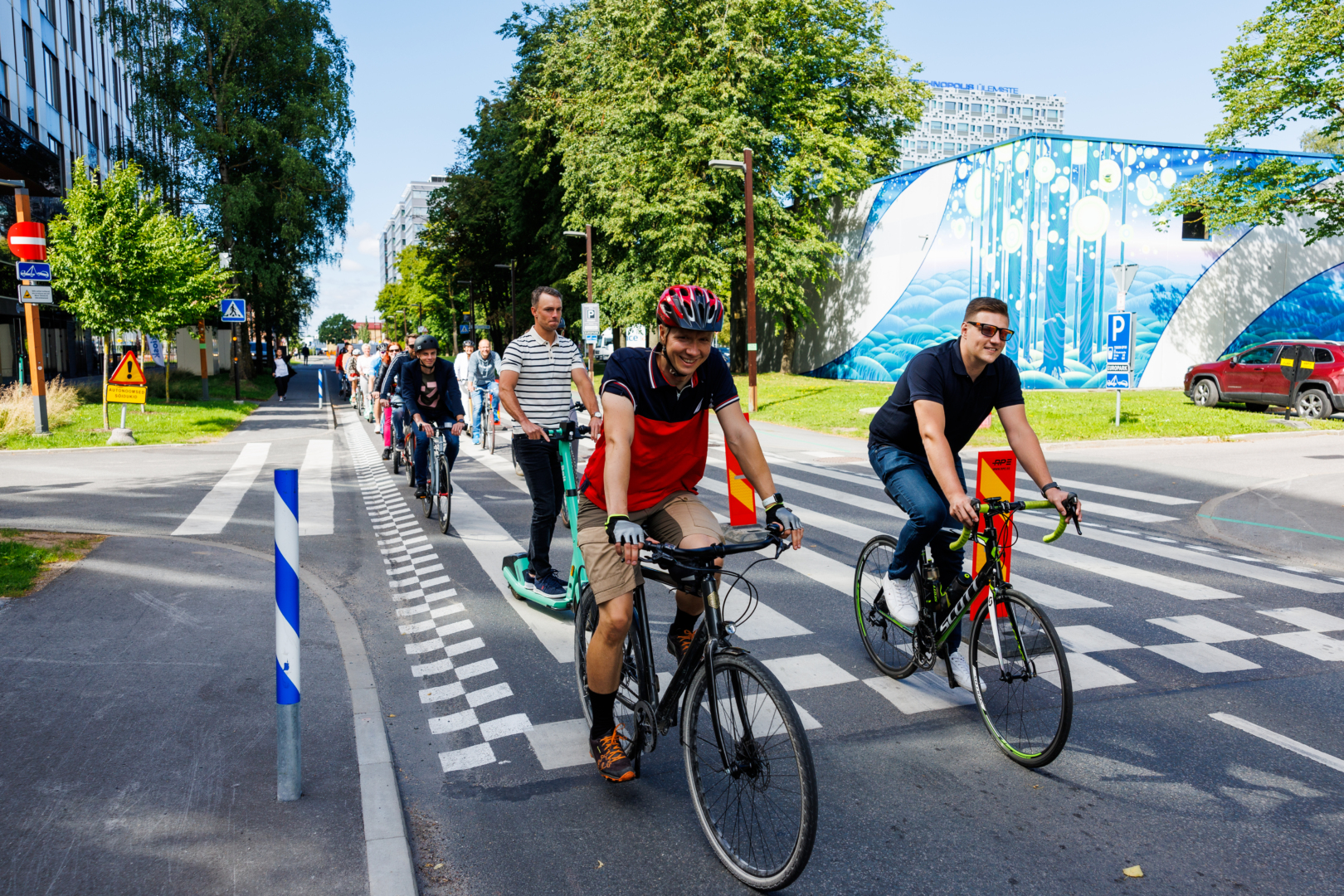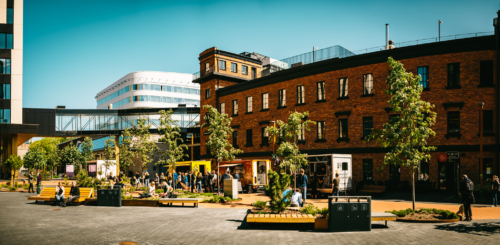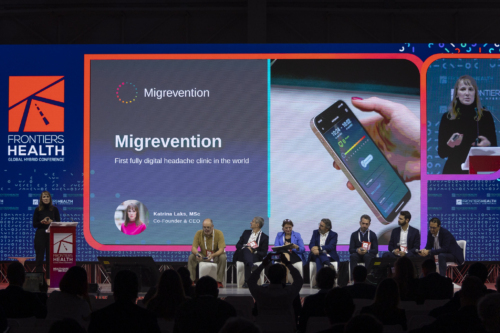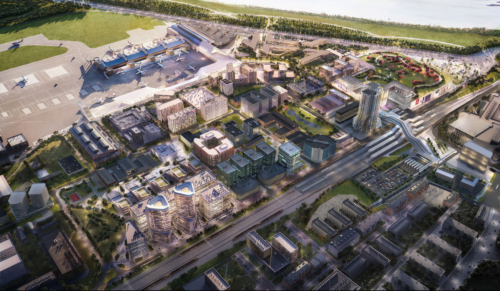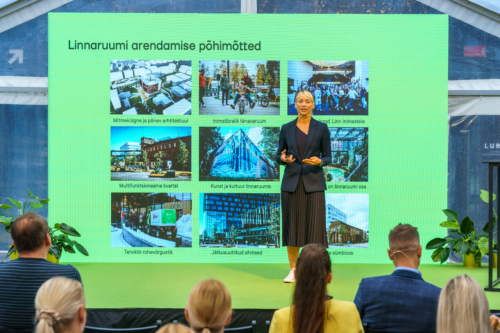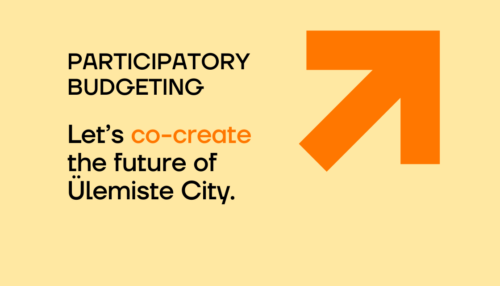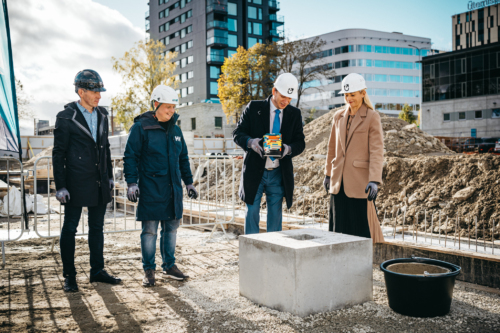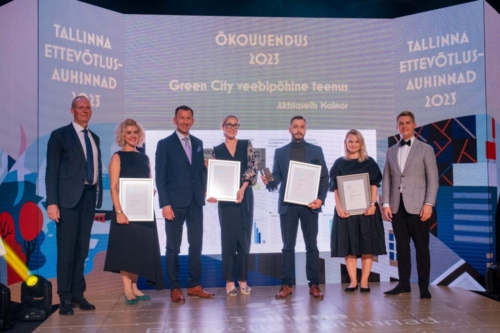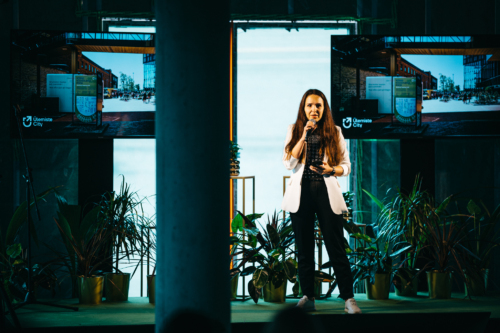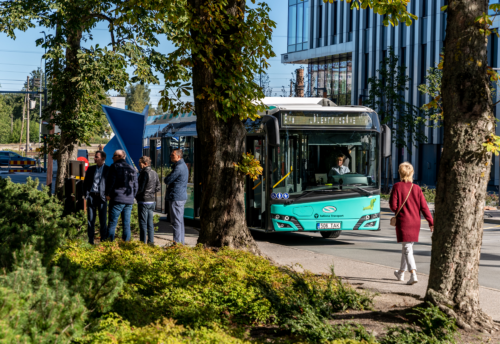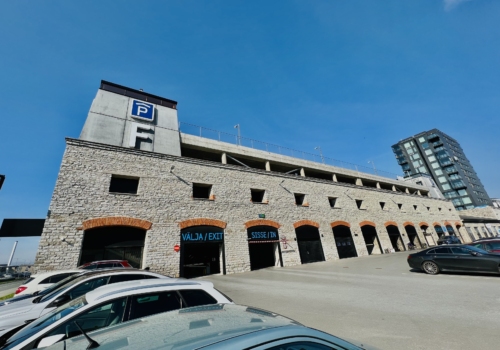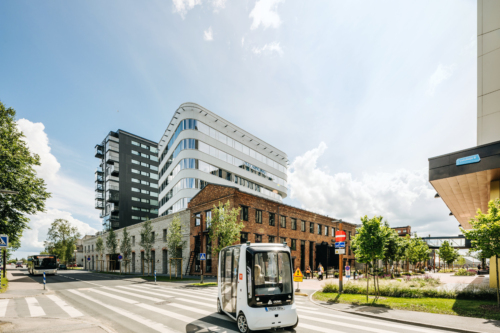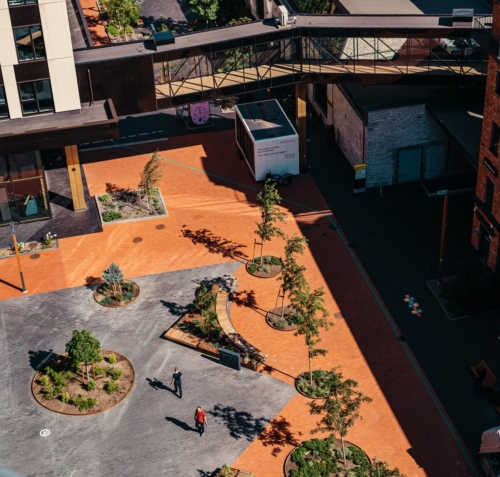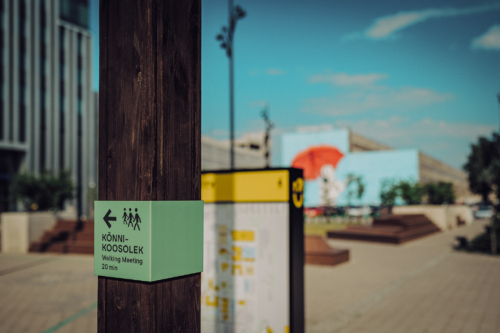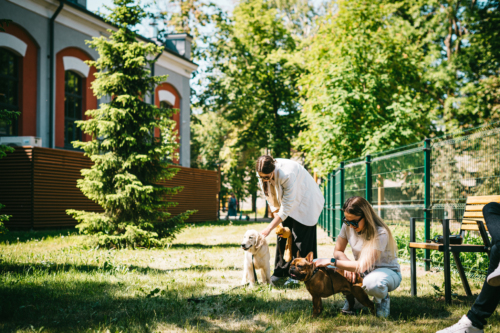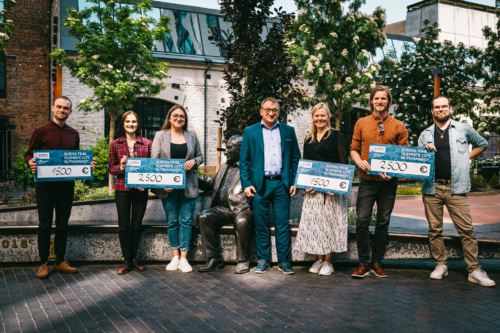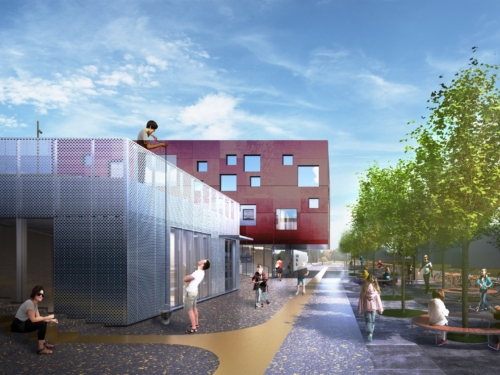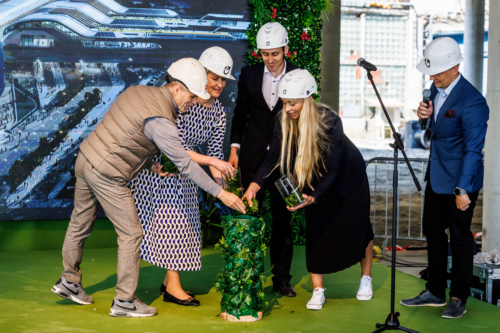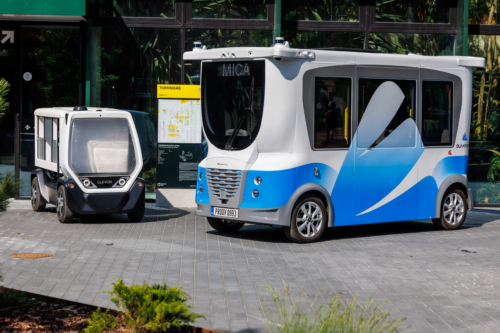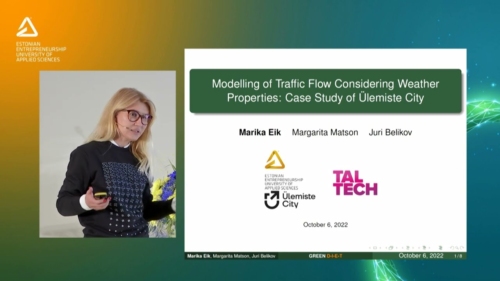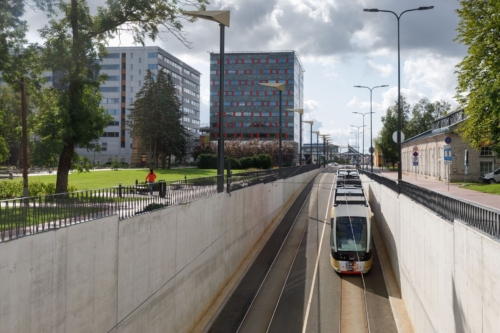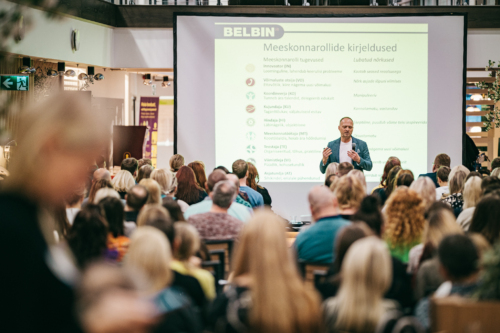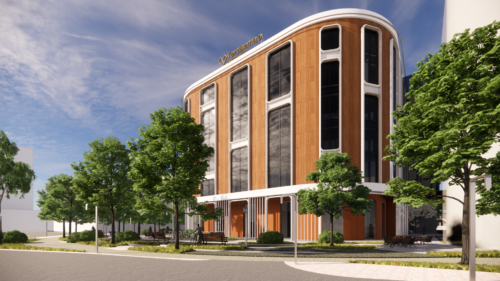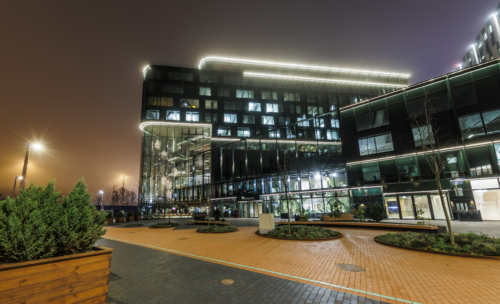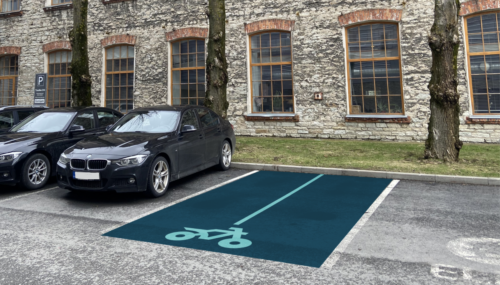Bicycle Paths Pilot Project
Motivation to move
In collaboration with the researchers from the University of Tartu, studying the health behaviour and habits of the people of Ülemiste City, it has become clear that the people of the campus spend an average of 5-8 hours a day sitting. This is a high health risk as even an hour of exercise does not make it possible to eliminate the adverse effects of sitting.
In August and September 2022, in cooperation with the city of Tallinn, it was decided to change the traffic management of Ülemiste City and to facilitate traffic for cyclists, scooters and also pedestrians – again to create more opportunities on campus for those who enjoy different forms of movement and to motivate people to rethink their exercise. Within two months, Lõõtsa and Valukoja streets were partially modified one-way in consideration of the needs of commuters.
The project was completed as part of the inclusive city concept of Ülemiste City. Before and after the project, the people on the campus were interviewed to get valuable feedback about what kind of urban space they would like to experience and actively use. The other stakeholder of the project, the city of Tallinn, in turn, had the opportunity to see how data can be used t omake future development decisions in case of environmental interventions.
An ambitious goal
In 2022, a survey conducted by the Estonian Entrepreneurship University of Applied Sciences revealed that the main form of transportation to the Ülemiste campus was by far car, that was used mainly by 54% of the respondents, followed by public transport, bus (23%) and tram (7%) and walking (7%). The share of other forms of transportation as the primary form of transport remained below 5%.
The project’s goal was to increase the proportion of light vehicles and pedestrians from five to ten per cent to reduce the level of noise and pollution in the environment. The long-term goal was to support the Tallinn 2035 development strategy, which proposes that by 2025, 50% of people could reach the campus by public transport, on foot or by bicycle, and by 2035, 70%.
As of the beginning of the summer of 2022, the alternative, or occasionally used, form of transportation on campus were mainly scooters (22%) or bicycles (21%), followed by buses (19%) and walking (18%), followed by trams (10%) with pretty equal proportions. The train was used both as the main and as an alternative form of transport by approximately 2%
From data to developments
Various solutions created by start-ups were used to collect quantitative data. With Fyma, information was collected from intersections about the number of car-, bicycle- and scooter rides in the town. The dataset was validated with the information obtained from Bikeep bicycle parking lots, and the noise information was collected with Thinnect sensors.
In parallel, the Bike2Work campaign was running in cooperation with the Activate application, where people could register their trips to work by bike. It was the first environmental intervention project for Ülemiste City, where the data generated from the solutions of various start-ups were brought together. The environmental intervention of bicycle paths confirmed several known problem areas and opened new valuable information.
The qualitative study revealed that quieter and greener zones and a special complete network of bike paths are needed to move by bicycle or on foot. In addition, it was considered important that intersection separation areas and traffic lights be programmed so that pedestrians and cyclists do not have to wait for multiple traffic light cycles. The data from Fyma showed that many commuters approach Ülemiste City from the direction of Lasnamäe, where the necessary supporting infrastructure has not been created. Based on this knowledge, the campus, in cooperation with the city of Tallinn, can plan traffic better in the east direction in the future.
People who were used to driving into the heart of the campus by car or bus agreed that the noise-free environment created is a much more pleasant place to spend their work breaks outdoors.
During the two-month bicycle path pilot project and the three-month Bike2Work challenge, people’s cycling increased by a remarkable five per cent. Fifteen per cent of the companies of Ülemiste City participated in the campaign, and nearly 2,000 trips to work were made.
The bicycle path pilot project was organized by the city of Tallinn together with FinEst Centre of Smart Cities, financed by the European Regional Development Fund and the Ministry of Education and Research.
